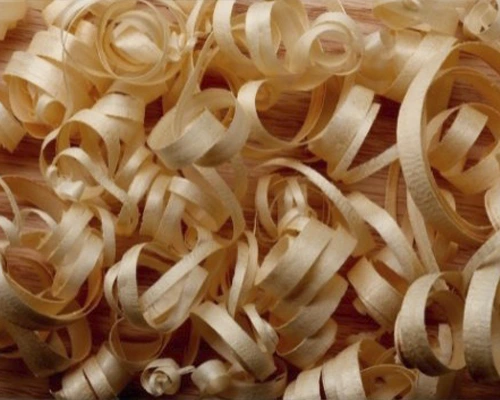Free delivery for purchases from CHF 45 in Switzerland!🇨🇭
Free delivery to Upper Engadin
Free delivery to Upper Engadin

Fully home compostable wooden coffee capsules that are compatible with all standard Nespresso® machines might be a solution to the colourful aluminium coffee capsules with a single serving of the hot beverage in a wide variety of flavours popular around the world.
Wood is a great raw material – available in abundance in Germany. For our coffee capsule we use softwood from south german forests. When sawmills produce construction and furniture wood, large quantities of sawdust and wood shavings are produced. Our manufacturer use this residual product in a natural form as raw material for our coffee capsules. We don’t have to process them chemically, we don’t have to cut down trees and we create an additional value-added stage for this great natural material.

Our coffee capsule does not contain any fossil plastics (plastic). Therefore it is free from microplastic, even during decomposition, and no microplastics can occur thanks to 100% bio-based ingredients.

The wood for our coffee capsules comes from sustainable sources, PEFC Forestry in Southern Germany. They use wood fibres from residual products such as sawdust.

Our coffee capsules consists to 100% of renewable resources. This is an independently certification by DIN CERTCO with the seal “100% bio-based” (test number 8C150).

Our coffee capsule can completely return to nature after use. Due to 100% renewable and biodegradable raw materials there is technically disposal via the bio bin or your compost nothing stands in the way.

The sustainable wooden coffee capsules are demonstrably made from 100% bio-based, renewable raw materials. The main ingredient here is wood which is processed into our ecological coffee capsule in the form of wood shavings. For this purpose, the manufacturer mix raw wood fibres with a binder made of plant starch (PLA).
Due to 100% renewable raw material originating from the cycle of nature, no harmful substances can enter the environment even after use. Thus, our coffee capsules create a natural and CO2-neutral cycle.
Coffee in capsules is convenient and popular. Millions of coffee connoisseurs enjoy it every day. But many have concerns about the environmental impact of capsules made of aluminum or plastic.
The consumption of coffee capsules is about 59 billion per year.

Aluminum which is a high-tech material that offers many advantages, such as good processability and very low permeability, as well as a wide range of possible applications. Aluminum is available on the market into two categories:
Its extraction comes from the aluminum ore “bauxite” in the Brazilian rainforest for example. The extraction process comes from the bauxite in a multi-stage involving the addition of various chemicals and the generation of waste materials.
The recovery comes from waste by recycling within the framework of the circular economy.
Another popular material is from petrochemical plastics. The Processing is done by injection moulding, because is cheaply and easy to process. But has a poor barrier properties against penetration of oxygen molecules. They add High-performance plastics to the polypropylene, either as a layered composite or as an outer coating, to achieve a corresponding barrier.
Since it is usually not pure plastics but the composites in the capsules production and they fille with ground coffee and seal with aluminum foil, it’s impossible to recycle.

The sustainable wooden coffee capsules are demonstrably made from 100% bio-based, renewable raw materials. The main ingredient here is wood which is processed into our ecological coffee capsule in the form of wood shavings. For this purpose, the manufacturer mix raw wood fibres with a binder made of plant starch (PLA).
Due to 100% renewable raw material originating from the cycle of nature, no harmful substances can enter the environment even after use. Thus, our coffee capsules create a natural and CO2-neutral cycle.
Coffee in capsules is convenient and popular. Millions of coffee connoisseurs enjoy it every day. But many have concerns about the environmental impact of capsules made of aluminum or plastic.
The consumption of coffee capsules is about 59 billion per year.
Aluminum which is a high-tech material that offers many advantages, such as good processability and very low permeability, as well as a wide range of possible applications. Aluminum is available on the market into two categories:
Primary aluminum
its extraction comes from the aluminum ore “bauxite” in the Brazilian rainforest for example. The extraction process comes from the bauxite in a multi-stage involving the addition of various chemicals and the generation of waste materials.
Secondary aluminum
the recovery comes from waste by recycling within the framework of the circular economy.

Another popular material is from petrochemical plastics. The Processing is done by injection moulding, because is cheaply and easy to process. But has a poor barrier properties against penetration of oxygen molecules. They add High-performance plastics to the polypropylene, either as a layered composite or as an outer coating, to achieve a corresponding barrier.
Since it is usually not pure plastics but the composites in the capsules production and they fille with ground coffee and seal with aluminum foil, it’s impossible to recycle.
Wood shavings are 100% natural material and are generated mostly during the machine processing of wood in timber mills. … Normally, a difference is made between wood chips and wood shavings, as well as between sawdust, a clearly finer, dustier product.
When sawmills produce construction and furniture wood, large quantities of sawdust and wood shavings are produced.
To produce this wooden coffee capsules the manufacturer uses this residual product in a natural form as raw material.
Wood fibres must be held together with a binding agent. For this they use PLA, a bioplastic from natural plant starch. They obtain vegetable starch from corn and beetroot sugar. Our manufacturer tests PLA for compostability. However, since the wood content of the capsule is predominant, it decomposes faster than conventional bioplastic packaging.
The term biodegradable is applicable to natural products that can disintegrate by bacteria, fungi into natural elements. It can be carbon dioxide (CO2) and water steam. The decomposition of plastics into microplastics is different from biodegradation. Microplastics is a consequence of the physical decomposition of plastics. It do not dissolve and remain in the environment in the form of solid particles. Biodegradable plastics decompose without leaving any residue.
breakdown into a few natural elements. To label a product as biodegradable, it must to be able to turn into organic matter. To break down faster this products it typically takes between 3 and 6 months. However only lessen their environmental impact if you dispose it properly.
leave behind a single organic material humus. Composting is the process of recycling organic waste for reuse. Composting not exclude contents of fossil components and may contain non-degradable components. Many compostable coffee capsules not base on renewable raw materials and may contain fossil components.
Our Capsules contain 100% bio-based ingredients. It does not release harmful substances into the environment during composting. Also the capsules consists in 50% wood in form of sawdust. This means a good biomass, which provides nutrients and supports the formation of humus. It accelerates the composting process. The sawdust is soaked up with water shortly the preparation of the coffee and increases the surface area for microorganisms to attack.
Interesting coffee ground is usable as fertilizer.
Our capsule is compatible with the most popular Nespresso® System machines.
Now that you understand that our coffee comes within the best capsule, 100% organic, compostable and biodegradable on the market, how about tasting it ?
CONVINCE YOURSELF OF OUR COFFEE
Café Santa Helena Specialty Coffee, Organic from Brazil
Compatible to Nespresso® System Machines
Natural Material, compostable and biodégradable